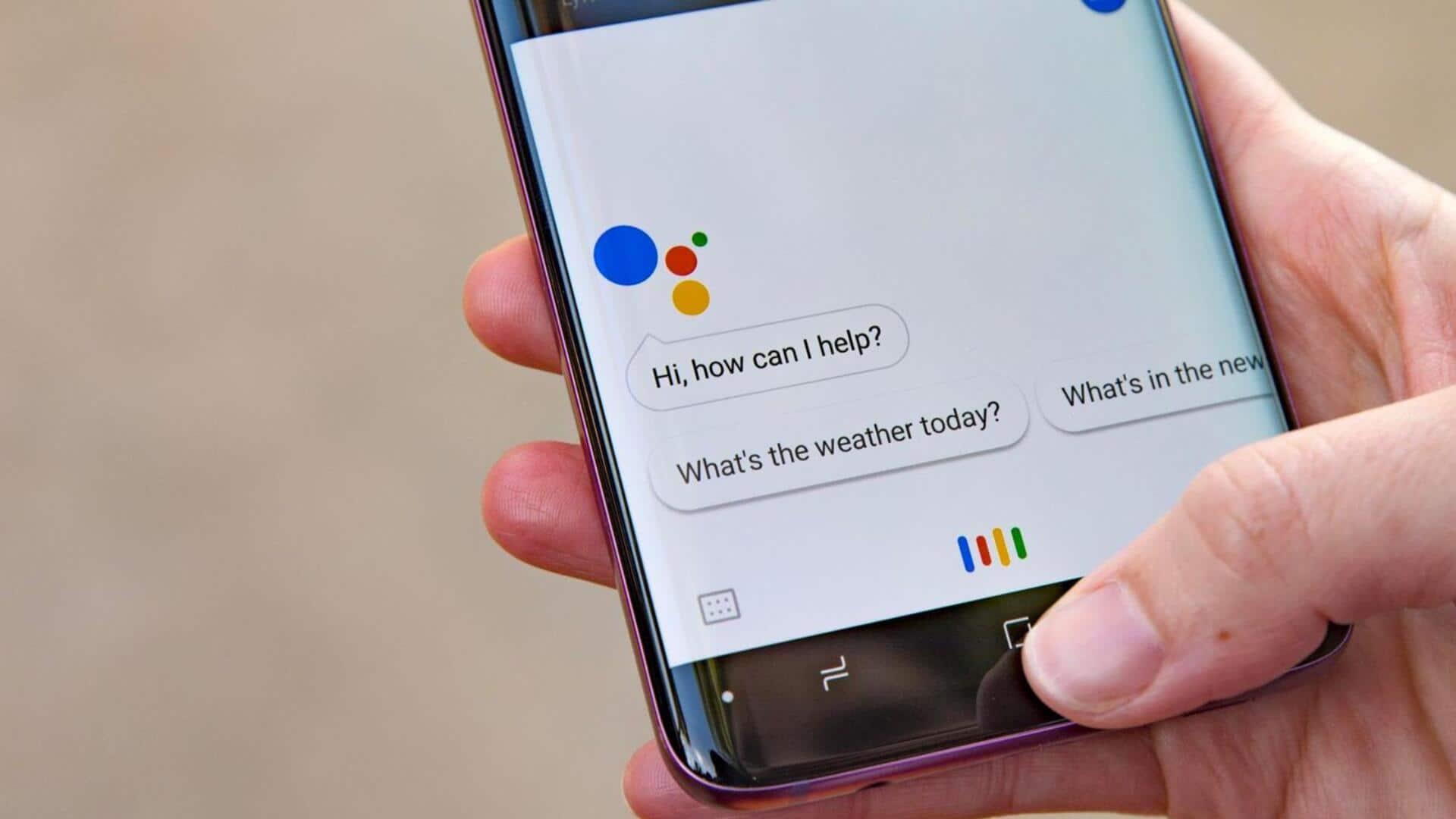
How Google plans to supercharge Assistant using generative AI
What's the story
In the era of ChatGPT and Bard, virtual assistants have seemingly lost their value. To keep its Assistant relevant, Google is said to be shifting toward generative AI, as revealed by an internal email obtained by Axios. The revamped Google Assistant could reportedly have features powered by generative AI. Let's see how the company plans to "supercharge" its Assistant using AI.
Context
Why does this story matter?
Not too long ago, Google had put all its eggs in the Assistant basket. Despite being one of the leading names in AI research, the tech giant's focus on the consumer side was on a virtual assistant with some basic AI features. Some would say Google was complacent. But things have changed over the past few months; generative AI is all the rage now.
Gen AI
Google has already started revamping Assistant
Google already seems to have started the work on revamping the Assistant with generative AI capabilities. The mobile version of the product is the subject of the company's initial focus. However, the internal email does not seem to be talking about a full-fledged switch to generative AI. For now, the company appears to be supporting both old and new approaches.
Reorganization
Google reorganizing Assistant division as part of new vision
As part of its new vision for the Assistant, Google reportedly said it is reorganizing the team that works on Assistant. Per the email, the company is eliminating some roles in the Assistant division. According to Axios, Google will fire dozens of employees due to reorganization efforts. However, the company is yet to reveal how many people will be affected.
Opportunity
Company may use same technology as Bard
The email says the Assistant team leads see a massive opportunity in exploring what a "supercharged Assistant" with generative AI capabilities would look like. It is unclear what kind of features Google plans to add to Assistant. It could use the same technology behind Bard, allowing Assistant to search across the web and answer questions accordingly.
Issues
Practicality of assistants powered by LLMs still in question
Although large language models (LLMs) have powered chatbots and assistants, their practicality in this sector is yet to be proven. Current services like Google Assistant, Alexa, and Siri act more like Mad Libs, with users providing subjects and verbs. While LLMs can follow a conversation thread, it's unclear if users want in-depth discussions with digital assistants. A hybrid interface might be a better solution.